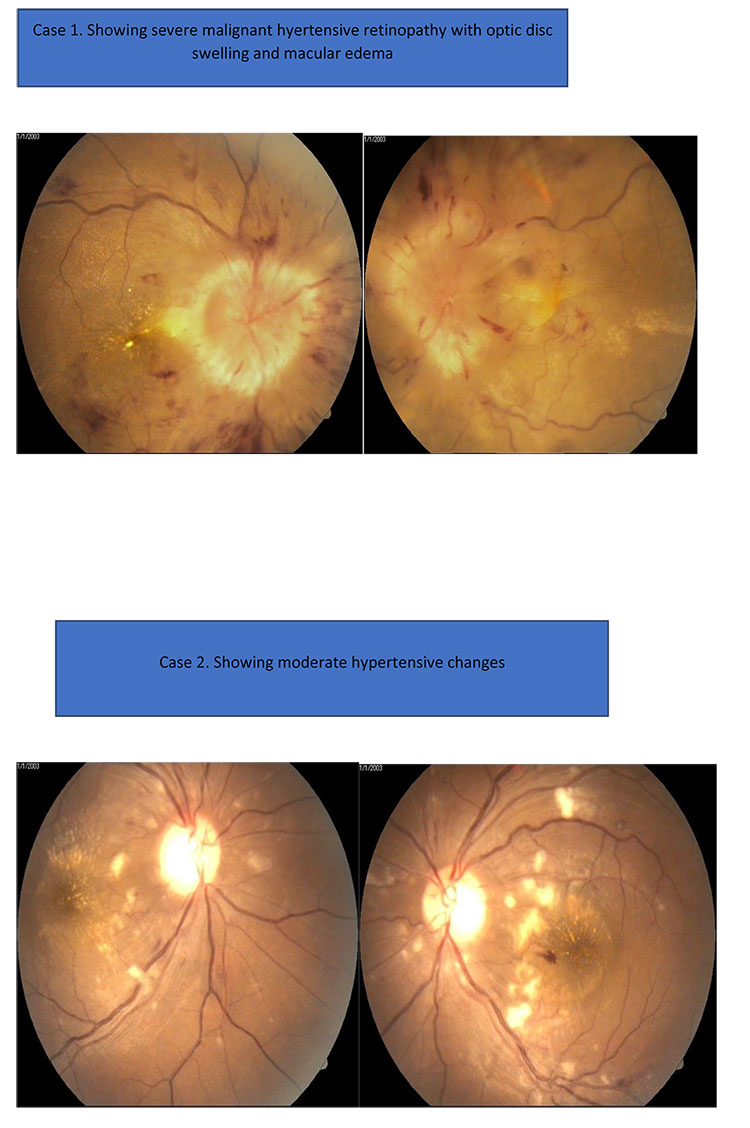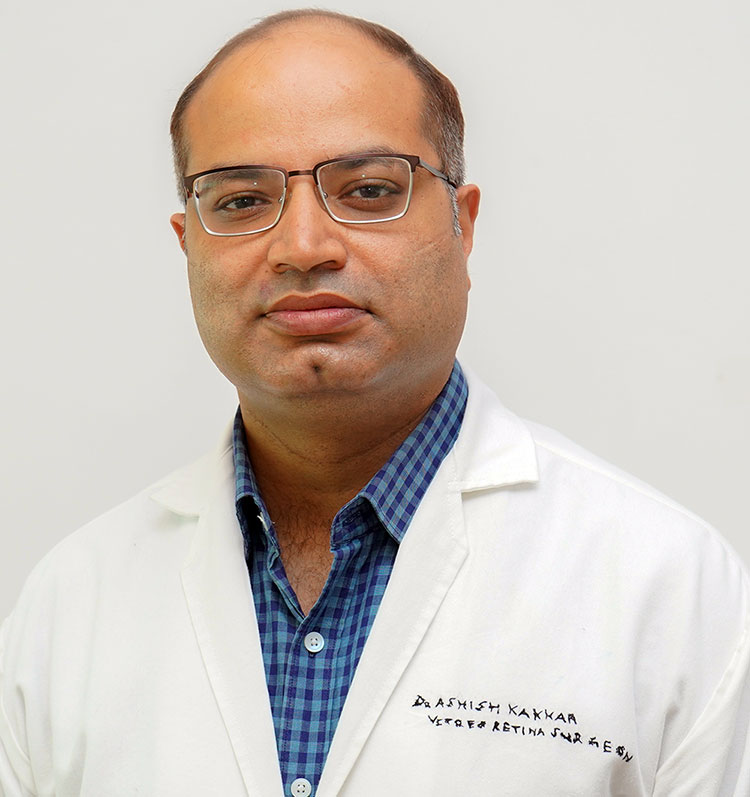Hypertension is a leading cause of morbidity worldwide. More than 1 billion persons worldwide suffer from hypertension. According to the World Health Organization, in 2015, raised BP (blood pressure) was responsible for 7.5 million deaths, about 12.8 per cent of the total of all deaths globally. Global Burden of Disease study 2010 attributed 9 million deaths to hypertension, making it the leading cause of death worldwide. Incidence of hypertension in young (adolescents and adults <30 years of age) has increased to alarming rates over the past few decades.
Many patients of hypertension remain undiagnosed may not have any associated risk factors like family history, obesity, smoking, etc. Patients with undiagnosed hypertension presents commonly with nonspecific symptoms like headache, blurring of vision, tinnitus. Fundus (retina) examination of these patients may be the first non-invasive investigation to diagnose underlying undiagnosed advanced hypertension. Uncontrolled hypertension can affect different systems of body like cardiovascular, renal, cerebrovascular and retina. Damage to these organs is called Target Organ Damage (TOD). Changes in retina due to hypertension is called hypertensive retinopathy.
Hypertension may affect eyes in different ways. Early stages of hypertension may manifest as mild blurring of vision with small retinal haemorrhages whereas in advanced stage there may be total loss of vision with severe optic disc swelling and macular oedema on retina examination. Hypertension can lead to paralysis of eye muscles and double vision also. In patient with history of blurring of vision and suspected hypertensive retinopathy complete eye examination is done including dilated fundus (retina examination), fundus fluorescein angiography and OCT (optical coherence tomography) is done. Retina examination is the only part of the body which we can directly see the end organ damage without any investigation. The Loss due to hypertensive retinopathy is reversible in only early stages of hypertension. In advanced stages damage to the retina is only partly reversible and full vision recovery may not occur. So early diagnosis and prompt treatment is key to prevent the damage.
Despite being a common disease, general awareness is required about the adverse effects of hypertension on eyes and other parts of body. The beneficial effects of antihypertensive therapyneed to be emphasized. Hypertension is still considered a disease of elderly and many patients with hypertension still remain undiagnosed or inadequately treated. Thus, screening for hypertension especially in young should be a crucial aspect of primary care medicine.
Dr Ashish Kakkar
Vitreo retina department
Shri Mahant Indiresh Hospital

